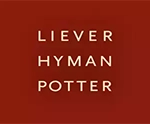From the Desk of John R. Badal, Esq. (auto accident lawyer/Truck accident lawyer)
Until recently in Pennsylvania, anyone injured in a car accident or truck accident could only bring suit against the driver who was believed to be at fault in causing an accident . The insurance company representing the at fault driver could not be named as a defendant although the company would be responsible for paying the defendant’s lawyer and any settlement or judgment up to the amount of the liability insurance coverage. If it was believed that the amount of the payment was inadequate then we could bring a claim against our client’s own insurance company if his or her policy had underinsured motorist coverage. Now a County Court Judge in Pennsylvania has ruled that an injured claimant can bring a claim against both the responsible driver and against the injured person’s own insurance company for underinsured motorist coverage in the same lawsuit.
The underlying personal injury case arose out of a collision which occurred when the vehicle operated by the initial Defendant, struck the rear of the vehicle operated by the Plaintiff. State Farm Insurance Company provided liability coverage to the Defendant, and in a separate policy underinsured motorist (UIM )coverage to the Plaintiff. State Farm Insurance Company opposed the Plaintiff’s Motion to Amend the Complaint on the ground that the defendant driver would be extremely prejudice(d) in this case if the plaintiffs were allowed to join their UIM carrier on a breach of contract claim in the action.
This Court relied upon a Pennsylvania Court rule which states that it is permissible to join actions involving the same transaction or occurrence and the same factual questions of liability and damages. In this case, the court found that the auto accident and underinsured motorist claim arose out of the same occurrence, which was the motor vehicle accident, and involved the same factual questions of liability and damages. This Court also noted that a Pennsylvania rule of evidence prohibits evidence that a party was or was not insured, when the purpose or effect would be to influence the findings regarding liability or damages. However, citing Commonwealth, Department of General Services v. United States Mineral Products Company, 809 A.2d 1000 (Pa.
Cmwlth. 202), the court said that when evidence of insurance is relevant as to other issues in the case it will not be barred merely because it might be prejudicial.
SEE: IN THE COURT OF COMMON PLEAS OF BEAVER COUNTY PENNSYLVANIA, CIVIL DIVISION-LAW
BRADISH-KLEIN and KLEIN vs. DONALD KENNEDY and STATE FARM INSURANCE COMPANY, No. 11548 of 2009
JRB, ESQ. Accident car lawyer/auto accident lawyers February 24, 2010.

